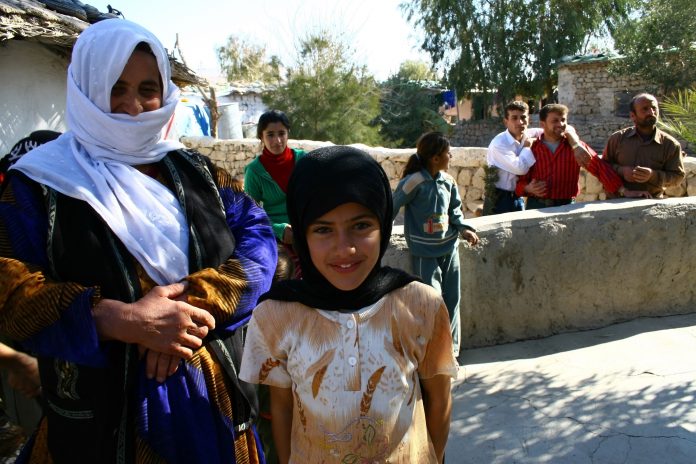Faryal Minhas, Country Director for Iraq at Human Appeal tells us that women are losing the gender battleground once again because of the global pandemic restrictions
Gender-based violence (GBV) is soaring as a result of COVID-19. I am witnessing this daily as the Country Director for Human Appeal in Iraq, but I see reports published from Sudan, to Syria to Venezuela from different aid agencies all reporting alarming rates of GBV. It’s an issue that isn’t generating the headlines that it deserves. It’s eroding any progress that’s been made and taking women back in time. The long-term impact of this could be catastrophic.
Alongside being a violation of human rights, violence against women and girls is a barrier to ending poverty. It traps individuals into a poverty cycle and deepens existing economic inequality between men and women. We need to protect and prioritise women’s rights as a means to erode global poverty.
Humanitarian response
Of the $41.5 billion spent on humanitarian responses between 2016 and 2018, just 0.2% was spent on GBV prevention (1). It’s often seen as a secondary priority during a humanitarian crisis, a fact reinforced by the lack of funding. According to the May update of the Global Humanitarian Response Plan (2), GBV programming represented less than 1% of the overall COVID-19 funding appeal; as of June 23rd, only 8% of this very small appeal had been funded. But it’s often during times of a humanitarian crisis that GBV occurs the most – families are displaced, regular protection and support networks are no longer available and the financial strain put on families pushes tensions and behaviours to the limits. The conditions and chaos caused by COVID-19 have created the perfect storm that threatens women’s rights and safety.
Domestic violence
In Iraq, where I have worked for the last year, a recent report into GBV (3) reveals some harsh realities. There has been a sharp rise in different forms of GBV, with domestic violence accounting for 75% of reported cases. The report showed that 27% of cases were cited as new cases taking place during the COVID-19 outbreak. 123 cases of GBV-related suicide attempts are reported alongside 62 incidents where families denied women and girls access to quarantine or health facilities. Increased tension linked to loss of livelihood and financial distress was reported as the primary cause of GBV by 94% of the respondents. Stress consequences due to loss of livelihood are often cited as the reason for GBV in developing nations, and this pattern is playing out in Iraq and further afield because of COVID-19.
Outside of Iraq similar patterns of GBV are being reported. Global lockdowns have meant women have been trapped in cramped conditions with no means to escape violence and sexual assaults. These conditions are compounding pre-existing patterns of abuse. The United Nations’ sexual and reproductive health agency (UNFPA) estimated in April (4) that six months of lockdown measures could result in an additional 31million case of GBV globally. Restrictions on aid workers mean that there are often fewer people to turn to for help.
Healthcare
Outside of acts of abuse, lockdown restrictions have shut off healthcare to millions of women globally, meaning access to reproductive and health infrastructure, including birth control, menstrual supplies, GBV-support and HIV testing has not been available. Back in April, the International Planned Parenthood Federation (IPPF) estimated that 5,600 sexual and reproductive healthcare clinics in 64 countries had closed. UNFPA projects that more than 47 million women could lose access to contraception, leading to 7 million unintended pregnancies. (5).
Legal services
Alongside stretched or cancelled medical provisions, women have struggled to access legal services throughout the pandemic. Movement restrictions have prevented women from accessing these services, and coronavirus has added bureaucratic delays to all paperwork. For those waiting on residency permits, child support or custody these delays leave them feeling vulnerable.
Inevitably the pandemic is also having an impact on child marriages and human trafficking. A study carried out by UNFPA warned the coronavirus crisis could stall measures to curb the practice of child marriage and possibly lead to an additional 13 million child marriages in the next decade that could have been stopped. I have read many incidents of forced early marriage as families have been unable to earn an income so they look for alternative ways to generate money, including marrying off young daughters. In some instances, families marry off daughters’ young as a means to protect them and ensure they are well fed.
COVID-19 has restricted the usual agencies that monitor and report incidents of GBV so the true extent of this may yet go unreported. Without accurate data and trends, it is hard to safeguard funding, personnel and projects. The long-term consequence of GBV caused as a result of COVID-19 is huge and this issue needs to be higher up the political and humanitarian agenda. If GBV response services and women’s reproductive healthcare are not seen as essential then we are putting untold lives at risk. Beyond that immediate threat, we risk undermining years of work to empower women and girls in emergencies and the progress made for gender equality; women and girls will feel the fallout of this pandemic long after a vaccine has been developed, and the world’s economies have recovered.
References
- The New Humanitarian article titled Q&A: Why does so little aid money go to preventing violence against women and girls? published 27 November 2019. Research conducted by journalist Megan Clement.
- GBV Community Letter on the Global Humanitarian Response Plan issued 29th
- GBV Sub Cluster Rapid Assessment on the Impact of COVID-19 outbreak on GBV in Iraq, May-April 2020.
- (4) UNFPA Impact of the COVID-19 Pandemic on Family Planning and Ending Gender-based Violence, Female Genital Mutilation and Child Marriage 27 April 2020.
- UNFPA Impact of the COVID-19 Pandemic on Family Planning and Ending Gender-based Violence, Female Genital Mutilation and Child Marriage. 27 April 2020.











